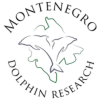DMAD at ICYMARE Online Conference with Two Presentations
ICYMARE: International Conference for Young Marine Researchers We did make two presentations yesterday at the online forum organized by ICYMARE.Our colleague Liam van Walsum and Enorha Guimard present DMAD in the online forum with their presentation titled “Biodiversity of the Proposed IMMA of the Turkish Straits System”. They emphasized the importance of the Turkish Straits System as a Protection Area.The other presentation title “Investigating an apparent decline of Bottlenose Dolphins in Montenegro & how Citizen Science has helped to fill data gaps during the current pandemic” and presented by our colleague Laura Rudd. Click here for our latest article on the subject in Montenegro.
DMAD at ICYMARE Online Conference with Two Presentations Read More »
